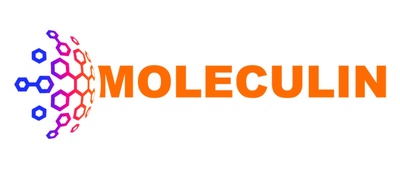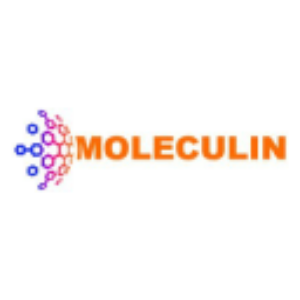Moleculin Presents Positive Preliminary Efficacy Findings from Phase 1B/2 Clinical Trial Demonstrating 64% Stable Disease Rate Through Two Cycles of Annamycin for the Treatment of Soft Tissue Sarcomas (STS) Lung Metastases
- None.
- None.
– Poster Presented at the 2023 Connective Tissue Oncology Society (CTOS) Annual Meeting
– Annamycin continues to be
– Annamycin has Fast Track Status and Orphan Drug Designation from FDA for the treatment of soft tissue sarcoma
The abstract titled, "A Phase 1b/2 Study of Liposomal Annamycin (ANN) in Subjects with Previously Treated Soft-Tissue Sarcomas (STS) with Pulmonary Metastases," was presented by Brian Andrew Van Tine, MD, PhD, Professor of Medicine, Washington University School of Medicine in a poster presentation at the 2023 CTOS Annual Meeting being held November 1-4, 2023 in
"Our growing body of preliminary data demonstrated by Annamycin in the treatment of patients with STS lung mets continues to be encouraging and bolsters our confidence in its potential to be a meaningful option for patients," commented Walter Klemp, Chairman and Chief Executive Officer of Moleculin. "While still preliminary, the rates of the median progression free response and the trend being established for overall survival despite the patients in this study having received multiple prior chemotherapy regimens continues to exceed our expectations. We look forward to further data readouts from this trial and understanding the full potential of Annamycin for the treatment of STS lung mets."
19 subjects were enrolled in the Phase 1B portion of the MB107 study. The median number of cycles administered was 2. There were no significant safety concerns or unexpected serious adverse events (SAEs) up to the 390 mg/m2 dose. The recommended Phase 2 dose (RP2D) was defined as 330 mg/m2. The most frequently reported adverse events (AEs) related to Annamycin were in the system organ class of Investigations (decreased platelet counts). There was no evidence of cardiotoxicity as measured by ejection fraction, strain analyses, ECGs, and cardiac biomarkers including Troponin-I and T. In Phase 2, 14 subjects (median # of prior therapies = 3) received at least 2 cycles of Annamycin at 330 mg/m2.
Of the 14 subjects enrolled in the Phase 2 portion of the trial, 9 (
Annamycin currently has Fast Track Status and Orphan Drug Designation from the
Study Design
In Phase 2, Annamycin was administered as an intravenous (IV) infusion over 2 hours on Day 1, followed by 20 days off therapy (1 cycle = 21 days). Subjects visit the study site every 21 days (±3 days) at which time safety monitoring – including for adverse events (AEs), as well as a physical examination, laboratory evaluations (clinical chemistry, complete blood count), vital signs, weight measurements, Eastern Cooperative Oncology Group (ECOG) performance status, and electrocardiograms (ECGs) – are performed, followed by an IV infusion of study drug. Cardiac function is followed by echocardiogram (ECHO) scans at screening, at the end of the first two cycles and then following every other cycle thereafter, at the End of Treatment visit, and if feasible, during follow up at 6 months (±1 month) and 1 year (±1 month) after study drug discontinuation. As long as the Investigator considers that the benefits of treatment with Annamycin continue to outweigh the risks, treatment will continue every 21 days until tumor progression is observed or unacceptable toxicity occurs.
Tumor response is monitored every 6 weeks (±1 week) from Cycle 1 Day 1 during treatment, at the End of Treatment visit, and then every 3 months (±1 month) until disease progression using RECIST 1.1 criteria. Those subjects who leave the study after a maximum response is achieved and who do not start another therapy will be followed every 3 months (±1 month) for progression-free survival (PFS). If a subject receives further therapy after discontinuing from the study, they will be followed only for overall survival (OS) and if feasible, follow-up ECHO scans at 6 months (±1 month) and 1 year (±1 month) will be conducted after study drug discontinuation.
About Annamycin
Annamycin is the Company's next-generation anthracycline that has been shown in animal models to accumulate in the lungs at up to 30-fold the level of doxorubicin. Importantly, Annamycin has also demonstrated a lack of cardiotoxicity in multiple early-stage human clinical trials, including ongoing trials for the treatment of acute myeloid leukemia (AML) and STS lung metastases. For that reason, although additional data will be necessary, the Company believes Annamycin may not face the same usage limitations imposed on doxorubicin, one of the most common currently approved anthracyclines. Annamycin is currently in development for the treatment of AML and STS lung metastases and the Company believes the drug may have the potential to treat additional indications.
About Moleculin Biotech, Inc.
Moleculin Biotech, Inc. is a clinical stage pharmaceutical company with a growing pipeline, including Phase 2 clinical programs, for hard-to-treat tumors and viruses. The Company's lead program, Annamycin is a next-generation anthracycline designed to avoid multidrug resistance mechanisms with little to no cardiotoxicity. Annamycin is currently in development for the treatment of relapsed or refractory acute myeloid leukemia (AML) and soft tissue sarcoma (STS) lung metastases.
Additionally, the Company is developing WP1066, an Immune/Transcription Modulator capable of inhibiting p-STAT3 and other oncogenic transcription factors while also stimulating a natural immune response, targeting brain tumors, pancreatic and other cancers, and WP1220, an analog to WP1066, for the topical treatment of cutaneous T-cell lymphoma. Moleculin is also engaged in the development of a portfolio of antimetabolites, including WP1122 for the potential treatment of COVID-19 and other viruses, as well as cancer indications including brain tumors, pancreatic and other cancers.
For more information about the Company, please visit www.moleculin.com and connect on Twitter, LinkedIn and Facebook.
Forward-Looking Statements
Some of the statements in this release are forward-looking statements within the meaning of Section 27A of the Securities Act of 1933, Section 21E of the Securities Exchange Act of 1934 and the Private Securities Litigation Reform Act of 1995, which involve risks and uncertainties. Forward-looking statements in this press release include, without limitation, Moleculin's ability to continue the Phase 2 portion of the clinical trial on a timely basis. Although Moleculin believes that the expectations reflected in such forward-looking statements are reasonable as of the date made, expectations may prove to have been materially different from the results expressed or implied by such forward-looking statements. Moleculin has attempted to identify forward-looking statements by terminology including 'believes,' 'estimates,' 'anticipates,' 'expects,' 'plans,' 'projects,' 'intends,' 'potential,' 'may,' 'could,' 'might,' 'will,' 'should,' 'approximately' or other words that convey uncertainty of future events or outcomes to identify these forward-looking statements. These statements are only predictions and involve known and unknown risks, uncertainties, and other factors, including those discussed under Item 1A. "Risk Factors" in our most recently filed Form 10-K filed with the Securities and Exchange Commission ("SEC") and updated from time to time in our Form 10-Q filings and in our other public filings with the SEC. Any forward-looking statements contained in this release speak only as of its date. We undertake no obligation to update any forward-looking statements contained in this release to reflect events or circumstances occurring after its date or to reflect the occurrence of unanticipated events.
Investor Contact:
JTC Team, LLC
Jenene Thomas
(833) 475-8247
MBRX@jtcir.com
![]() View original content to download multimedia:https://www.prnewswire.com/news-releases/moleculin-presents-positive-preliminary-efficacy-findings-from-phase-1b2-clinical-trial-demonstrating-64-stable-disease-rate-through-two-cycles-of-annamycin-for-the-treatment-of-soft-tissue-sarcomas-sts-lung-metastases-301978487.html
View original content to download multimedia:https://www.prnewswire.com/news-releases/moleculin-presents-positive-preliminary-efficacy-findings-from-phase-1b2-clinical-trial-demonstrating-64-stable-disease-rate-through-two-cycles-of-annamycin-for-the-treatment-of-soft-tissue-sarcomas-sts-lung-metastases-301978487.html
SOURCE Moleculin Biotech, Inc.
FAQ
What is the drug presented at the CTOS Annual Meeting?
What is the key feature of Annamycin?
What is the status of Annamycin from the FDA?
What type of cancer does Annamycin target?








